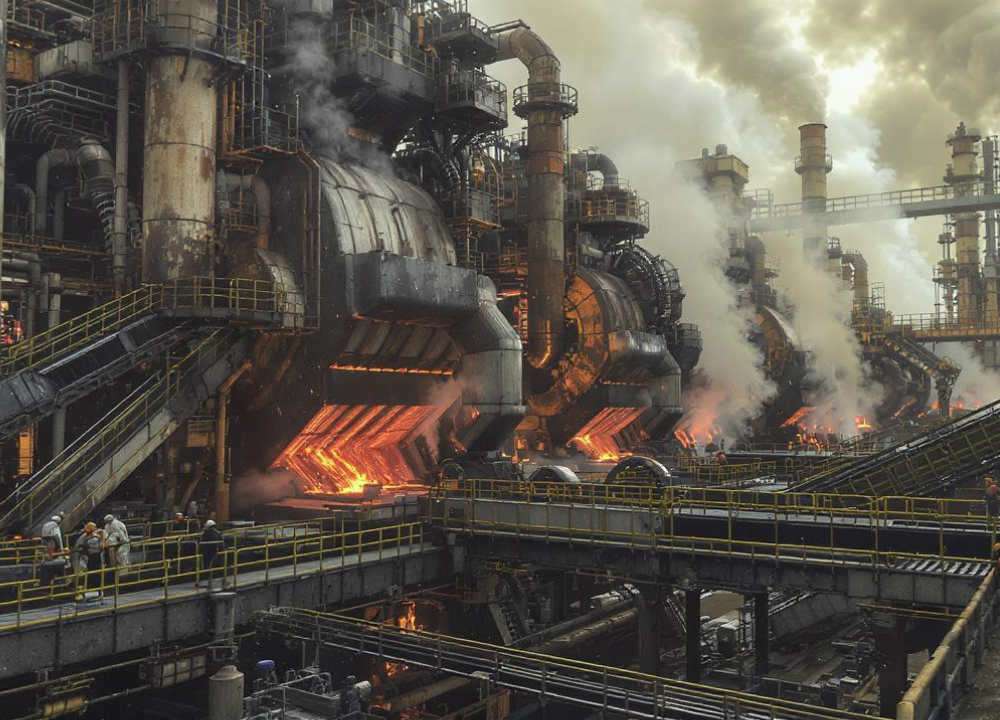Due to the global move towards electrification, demand for lithium-ion batteries has surged, sparking interest in battery recycling. The recycling industry has been chiefly focusing on pre-processing, which results in a mix of battery components like nickel, cobalt, lithium, and other metals. But if one were to go a step ahead, there is real value downstream in metal refining.
Critical metals like lithium, nickel, and cobalt are the backbone of new-age energy storage. Today, India exports unrefined black mass and imports refined critical metals at premium prices. There is a sore lack of domestic refining capacity, and due to our energy storage needs, critical metal refining becomes a key infrastructure requirement. India forfeits these materials’ real economic and strategic value by exporting black mass.
India imports all its nickel requirements, and no large-scale refineries exist. Lithium refining infrastructure is still nascent, and cobalt is entirely import-dependent. Building a domestic refining ecosystem is about national resource security, reducing supply chain dependence, and enabling Make In India. Without refining, India remains a middleman in its energy transition.
The Economics of Black Mass
Black mass, the intermediate product obtained after dismantling and shredding Li-ion batteries, is inconsistent in composition as it depends on the type of battery. For example, it can contain nickel, cobalt, lithium, manganese (NMC batteries), or lithium ferrous phosphate (LFP batteries) with other metals like copper, aluminium, electrolyte residues, graphite, and so on.
Economics are inconsistent and not always predictable for recyclers, as price depends on the metal content in the black mass and commodity markets. While production of black mass is scalable, value ads are consistently thin as one has to factor in logistics costs, processing inefficiencies (metal loss during recovery processes), etc.
Reports suggest that the average value added for black mass producers in the US hovers around 5-10% leaving little room after operational costs and capital investments. There is an impact from market volatility, fluctuating commodity prices and processing losses when producing black mass. The real profits are captured downstream by refiners who extract and sell materials like lithium carbonate, nickel, etc.
Metal Refining: Real Value and closed-loop supply chains
Refining transforms the intermediate product, black mass, into high-purity critical metals for various other uses. In-house refining will result in higher metal recovery rates, the ability to sell sustainable raw materials at premium prices, and improved recyclers’ margin certainty. In India, recyclers can produce various products like lithium carbonate, hydroxide, graphite, cobalt carbonate, etc.
Our lower costs, exceptional talent base and shorter supply chains can give us an edge in refining competitiveness. Refined metals can be reintegrated into the supply chains of these metals for use by various industries, including the battery supply chain, effectively closing the loop.
NITI Aayog reports that India will require approximately 193,000 tonnes of cathode active material per annum to produce 100 GWh per annum of batteries by 2030. A 2024 report by CEEW (Council on Energy, Environment and Water) estimates that local refining could boost margins by 20 to 30% for Indian recyclers, a game-changer for the nascent Indian recycling industry.
The Future of Indian Recyclers
Currently, policies and infrastructure are being implemented. The Battery Waste Management Rules (2022) mandate extended producer responsibility, pushing producers to recycle, and the proposed PLI scheme for Advanced Chemistry Cells encourages domestic battery material production. Subsidising refining R&D can incentivise refining.
While start-ups like ourselves are looking at closing the metals loop, investment into tech is essential for better recovery, reducing black mass variability through better sorting technology, etc. Refining infrastructure must be scaled, and companies have announced plans for lithium refining. Long-term offtake and metal streaming agreements with recyclers could guarantee demand and protect recyclers from market price volatility.
Black mass is necessary, but the endgame is refining. The real strategic, environmental and economic value lies in building domestic capabilities to refine lithium, cobalt and nickel. For recyclers, the path to staying relevant in a fast-evolving global battery system is to integrate, refine and capture the real worth of battery waste.








